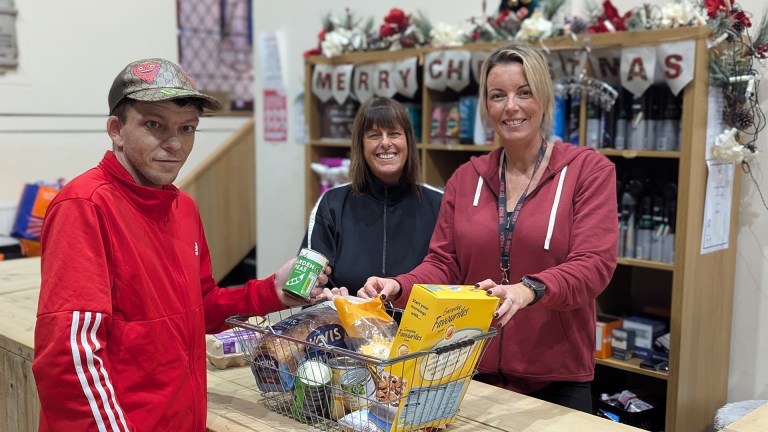“I’d never initially thought of the social side, I was more concerned about technique and improving, but parents and carers can see so many benefits for people who have done well in tournaments.”
There is also a route to employment. “We have 13 employees who are disabled and have come through the academy from the eight-to-18 age group,” Harrison says. “Instead of then leaving, we can give them a job.”
Read more:
Harrison, who was awarded the MBE in 2018, has worked hard to make the academy financially sustainable. “We initially got £20,000 from the lottery, but we’re now working with schools and colleges, using snooker as part of a maths lesson,” he said.
“It’s a hard slog on a minimal budget, so I have to try and act as a business. I have to go out and get meetings with managing directors of local companies to get sponsorship for our events. We get plenty of referrals now, so that shows we’re getting results.”
The current economic picture, in Sheffield and beyond, means Harrison’s role has extended far beyond snooker coaching. “Everybody’s skint up here,” he said. “We see first-hand the problems. Lidl donate food to us so on a Wednesday afternoon we can feed people, but I also have people whose PIP payments have been stopped, whose bus pass has been stopped so they can’t travel to the club. The government are knocking money down for people who don’t have money in the first place. I’m having to fight these battles.”
Advertising helps fund Big Issue’s mission to end poverty
The World Professional Billiards and Snooker Association, the game’s governing body, is also working with various bodies to encourage participation. Sensory Snooker, a collaboration with the charity Sense, was launched in 2023 to enable disabled people with complex needs to engage with the sport.
The WPBSA has also received funding from Parkinson’s UK to set up ‘Introduction to Snooker’ groups around the UK to provide free coaching sessions to those living with the condition.
A separate world disabilities circuit, run by the WPBSA, this year staged a world championship in Thailand with further events to come in Albania and Ireland.
Snooker has long been a relatively accessible sport and many of its great names have come from humble backgrounds, none more so than Mark Selby, who grew up on a council estate in Leicester. His mother left the family home when he was still a boy and, at age 16, his father suddenly passed away.
Selby, who went on to win the world championship four times, had been given free practice time by Malcolm Thorne, the local snooker club manager, a gesture which helped save him from a life of fecklessness.
“It kept me off the streets,” Selby said. “If I wasn’t involved in snooker I don’t know where I would’ve been. I might have got into trouble or gone down the wrong road. A lot of my friends were just hanging around, probably up to no good. The snooker club was a good place to be.”
Advertising helps fund Big Issue’s mission to end poverty
Kyren Wilson, the 2024 world champion, recently returned to his local school to speak to the pupils and sees the value of the sport in developing skills on and off table. “It would be great to have little tables in every school, you could create maths lessons around it. It’s given me a fantastic life so I can’t recommend it highly enough,” he said.
Pots of Gold: A History of Snooker by David Hendon is out on 25 September (Swift Press, £20). You can buy it from the Big Issue shop on bookshop.org, which helps to support Big Issue and independent bookshops.
Do you have a story to tell or opinions to share about this? Get in touch and tell us more.
Reader-funded since 1991 – Big Issue brings you trustworthy journalism that drives real change.
Every day, our journalists dig deeper, speaking up for those society overlooks.
Could you help us keep doing this vital work? Support our journalism from £5 a month.
Advertising helps fund Big Issue’s mission to end poverty










